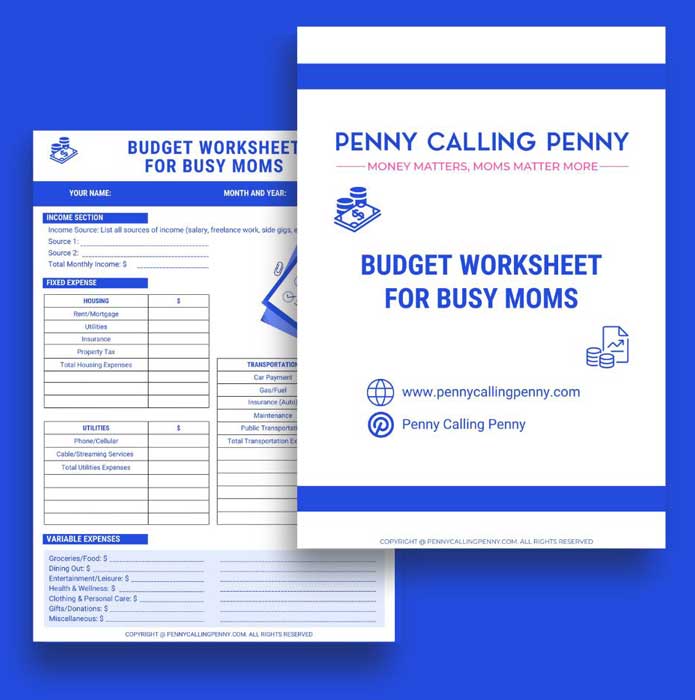In 2021, a report revealed a troubling situation in Indiana: households led by single women faced significant financial hardships, with a high rate of 76%.
Being a single mom is undoubtedly demanding, with the responsibility of managing housing, transportation, groceries, and educational expenses often falling squarely on their shoulders without the financial support of a partner.
Recognizing the urgency of this issue, the Indiana government has taken steps to provide a lifeline of support.
These programs encompass various forms of assistance, including housing support, help with bills, coverage for medical expenses, employment resources, and essential food aid, among other critical needs.
This blog is a helpful guide that discusses important financial grants designed to help single mothers in Indiana.
We’ll also provide detailed information on who can apply and walk you through the application process.
Grants For Single Moms In Indiana
Indiana’s state and federal agencies have different financial assistance programs to provide important help during tough times for single moms.
Keep reading to learn more about these grants.
Indiana Temporary Assistance For Needy Families (TANF)
The TANF program in Indiana is designed to offer financial assistance and support services to families with children under 18, aiding them in achieving financial independence.
Eligibility Requirements:
- Residency in Indiana is a prerequisite.
- Applicants must be either U.S. citizens, legal aliens, or qualified aliens.
- Individuals with a low or meagre income should be either unemployed or underemployed.
- Applicants must have caregiving responsibilities for a child aged 18 or younger.
- Meeting income and resource limits and actively participating in job search activities are essential criteria.
Application Procedure:
- To apply for TANF in Indiana, applicants can apply in person, by mail, online, or by fax.
- The completed application must be mailed to the FSSA Document Center, P O Box 1810, Marion, IN 46952, faxed to (800)403-0864, or hand-delivered to a local DFR office.

Source: Singlemotherguide.com
Indiana Supplemental Nutrition Assistance Program (SNAP)
Indiana’s Supplemental Nutrition Assistance Program (SNAP) is a fully federally-funded initiative providing food assistance to individuals and families with meagre incomes.
Eligibility Requirements:
- You need to live in the state, have the right citizenship or immigration status, sign up for work, and take part in the IMPACT job training program as non-money conditions.
- Financial criteria involve income and asset limits, with most households having an asset/resource limit of $5,000.
- All households (except those with elderly or disabled members) must meet a gross income test (set at 130% of the poverty level) to qualify for SNAP benefits.
Application Procedure:
- Applicants can apply for SNAP benefits in Indiana online or in person
- Once completed, the application can be mailed to the FSSA Document Center at P.O. Box 1810, Marion, IN 46952, faxed to (800) 403-0864, or hand-delivered to a local DFR office.
Medicaid
The Indiana Medicaid program is a healthcare assistance initiative designed to offer cost-effective or accessible healthcare coverage to qualified individuals in need, which includes low-income families with dependent children.
Eligibility Requirements:
- Individuals must be 19 years of age or older.
- Medicaid eligibility is determined by an income threshold of 138% of the federal poverty level (FPL) for adults under 65.
- Applicants must establish their residency in the state of Indiana.
- Applicants should hold U.S. nationality, citizenship, permanent residency, or legal alien status.
Application Procedure:
- To apply for Medicaid in Indiana, individuals can submit their applications online, in person, or via mail.
- The completed application should then be sent to the FSSA Document Center, P O Box 1810, Marion, IN 46952, faxed to (800)403-0864, or delivered to a local DFR office.

Download our free printable because guessing where your money went never worked for anyone!
(By subscribing, you agree to our terms & conditions, privacy policy, and disclaimer.)
Women, Infants, and Children (WIC)
The Indiana WIC program aims to assist low-income pregnant women, infants, and children under five who are at nutritional risk.
It offers supplementary food, nutritional education, and referrals to healthcare services.
Eligibility Requirements:
- To be eligible, you must fit into one of the following categories: low-income, nutritionally at-risk pregnant woman, infant, or child under 5.
- Eligibility for income is calculated considering the size of your family and your earnings.
- Residency in Indiana is required.
Application Procedure:
- To apply, contact your local WIC clinic to arrange an appointment.
- You must provide documentation during the appointment to confirm your identity, residency, and income.
- Once your eligibility is confirmed, you will receive a WIC EBT card to purchase approved WIC foods from participating retailers.
Head Start
Head Start is a federal initiative designed to enhance the cognitive, emotional, and social development of children aged from birth to five years who come from low-income households, ensuring their readiness for school.
The program provides valuable language, literacy, and social and emotional development support.
Eligibility Requirements:
- Children aged from birth to five from low-income families.
- Families with children aged three to five years whose household income is at or below 100% of the federal poverty level.
- Children placed in relative care through the Indiana Department of Child Services.
Application Procedure:
- Get in touch with a local Head Start program to schedule an appointment.
- During the appointment, bring the child’s birth certificate or any relevant paperwork from the Indiana Department of Child Services and proof of income for the parent or guardian.
- Complete the application and provide any additional documents as required.
Indiana Earned Income Tax Credit
The Indiana Earned Income Tax Credit (EITC) is a potent tool in the fight against poverty, particularly benefiting families with children.
Enhancing the federal EITC, Indiana adds a 10% bonus, fully refundable.
Distinct from federal guidelines, Indiana establishes unique income thresholds, favoring joint tax filers and families with three or more dependents.
Eligibility Requirements:
- Must qualify for the federal EITC.
- Indiana residency.
- Varying income thresholds based on filing status and number of dependents.
Claiming Indiana EITC:
(a) Complete and attach Schedule IN-EIC to your Indiana tax return.
(b) File using Form 1040 or 1040-SR if you have a qualifying child.
(c) Attach Schedule EIC to your tax return.
Contact Information:
For detailed assistance or inquiries visit the official Indiana Department of Revenue website.
Healthy Indiana Plan (HIP)
The Healthy Indiana Plan (HIP) is a state alternative to traditional Medicaid, providing health insurance for uninsured adult Hoosiers with incomes up to 138% of the federal poverty level.
HIP offers two distinct plans, each with unique benefits to cater to individual healthcare needs.
Eligibility Requirements:
- Uninsured adults aged 19-64.
- Annual income up to 138% of the federal poverty level.
- Different income thresholds for specific age groups and household sizes.
HIP Plus:
- Comprehensive coverage, including dental, vision, and chiropractic services.
- Low, predictable monthly costs, as low as $1 for those earning less than $456 per month.
- Medical expenses covered through the POWER Account, a dedicated savings account.
HIP Basic:
- No premiums but limited benefits.
- Requires payment for each healthcare service received, including copayments for doctor visits and prescriptions.
How To Apply For Hip:
(a) Apply online through the HIP application portal.
(b) Visit your nearest Division of Family Resources (DFR) office.
(c) For more information on the application process, call 1-877-GET-HIP-9.
Contact Information:
For inquiries or assistance, visit the official HIP website.
Indiana Hoosier Healthwise (HHW)
Indiana Hoosier Healthwise (HHW) is a crucial health insurance program, ensuring eligible Indiana children up to age 19 and pregnant women without Medicaid coverage receive essential medical care.
HHW offers two distinct benefit packages, each designed to meet the specific needs of enrolled individuals and families.
Eligibility Requirements:
- Indiana residency.
- Children up to age 19 and pregnant women not covered by Medicaid.
- Varying income limits based on family size.
Benefit Packages:
(i) Package A
- Coverage for doctor visits, prescription medicine, mental health care, dental care, hospitalizations, surgeries, and family planning.
- No cost-sharing obligations for members.
(ii) Package C
- For children enrolled in CHIP.
- Small monthly premium payment and co-pay for some services based on family income.
Income Limits For HHW:
Vary based on family size, with children from families up to 255% of the federal poverty level qualifying for CHIP.
How To Apply For HHW:
(a) Apply online through the HHW application portal.
(b) For assistance in locating an HHW eligible provider, call 1-800-299-1627.
Contact Information:
For additional information or support, visit the official HHW website.
Indiana Child Care and Development Fund (CCDF)
The Indiana Child Care and Development Fund (CCDF) is a vital program providing financial assistance to eligible working families, easing the burden of child care costs.
Designed to support low-income families, CCDF ensures access to quality child care, promoting the well-being of children and enabling parents to pursue employment or education.
Eligibility Requirements:
- Indiana residency.
- Families with working parents or parents attending school or job training.
- Initial income eligibility set at 150% of the federal poverty level.
Income Limit For CCDF:
Determined by family size, with an initial income eligibility of 150% of the federal poverty level.
How To Apply For CCDF:
(a) Apply online through the new “Early Ed Connect” application for a more user-friendly experience.
(b) Families seeking assistance can also call 1-800-299-1627 for guidance.
Contact Information:
For more information or assistance, visit the official CCDF website.
Indiana On My Way Pre-K
Indiana’s On My Way Pre-K program is a transformative initiative, providing free pre-kindergarten education to 4-year-olds from low-income families.
This program aims to prepare young minds for school, offering equal educational opportunities and supporting families in their pursuit of a better future.
Income Limit For On My Way Pre-K:
- Increased to 150% of the federal poverty level, expanding accessibility to more families.
Application Process:
(i) Eligible families can apply online through the Early Ed Connect portal.
(ii) Alternatively, applications can be submitted in person at local intake agents.
How To Apply For On My Way Pre-K:
(a) Submit applications online via Early Ed Connect or in person at local intake agents.
(b) Ensure eligibility by meeting the increased income limit criteria.
Contact Information:
For inquiries or assistance, visit the official On My Way Pre-K website.
Indiana National School Lunch Program (NSLP)
The Indiana National School Lunch Program (NSLP) plays a crucial role in ensuring eligible children receive proper nutrition, supporting their academic success.
This program provides free or discounted school meals to students from families with incomes falling below specific poverty guidelines, fostering a healthy learning environment.
Eligibility Requirements:
- Family income at or below 130% of the poverty line for free meals.
- Family income between 130% and 185% of the poverty line for reduced-price meals.
Application For Free Lunch In Indiana:
(i) Submit an application directly to your school or district any time during the school year.
(ii) Determine eligibility based on family income and size.
Changes In Program Eligibility:
Federal waivers during the pandemic allowed all Indiana students to receive free school meals, but this program sunsetted in 2022.
Contact Information:
For further details or assistance, visit the Indiana Department of Education website.
Indiana Summer Food Service Program (SFSP)
The Indiana Summer Food Service Program (SFSP) is a vital initiative addressing the nutritional needs of children in low-income areas during the months of June, July, and August when school is not in session.
This program ensures that children, 18 and younger, receive free, nutritious meals and snacks at designated SFSP Meal Sites throughout Indiana.
Eligibility Requirements:
- Open to all children aged 18 and younger.
- Meals and snacks are also available for persons with disabilities participating in school programs for those with mental or physical disabilities.
Accessing SFSP Meals:
(i) Text “summer meals” or “verano” to (914) 342-7744 for additional information.
(ii) Call the National Hunger Hotline at 1-866-3-HUNGRY.
Contact Information:
For inquiries or to locate SFSP Meal Sites, visit the official SFSP website.
Indiana Energy Assistance Program (EAP)
The Indiana Energy Assistance Program (EAP), known as Low-Income Household Energy Assistance Program (LIHEAP), is a federally-funded initiative designed to aid qualifying households with the costs of heating during winter and cooling during the summer.
This program ensures that eligible households, particularly the elderly, disabled, and those with small children, receive support to maintain essential utilities.
Eligibility Requirements:
- Indiana residency.
- Income not exceeding 150% of the federal poverty level.
Financial Assistance Details:
- Eligible households may receive a one-time credit of up to $800.
- Priority given to vulnerable populations such as the elderly and disabled.
How To Apply For EAP:
(i) Submit applications through a local Community Action Agency, also known as Local Service Provider (LSP).
(ii) Apply online at the Indiana EAP Client Portal.
Summer Cool Program:
- Offered when funding is available during June to August.
- Available to eligible households to use towards their electric bills.
Contact Information:
For application details or more information, visit the Indiana EAP website.
Indiana Low-Income Household Water Assistance Program (LIHWAP)
The Indiana Low-Income Household Water Assistance Program (LIHWAP) is a temporary emergency initiative designed to aid low-income households and families facing challenges in paying their water and wastewater bills.
LIHWAP, an extension of the Energy Assistance Program (EAP), prioritizes households with vulnerable populations, including the elderly, disabled, or families with young children.
Eligibility Requirements:
- Must meet the income eligibility requirements of the Energy Assistance Program (EAP).
- Priority given to households with the elderly, disabled, or a child under age 6.
Applying For LIHWAP:
(i) LIHWAP assistance can be applied for through the Energy Assistance Program (EAP) application.
(ii) While completing the EAP application, check the box to apply for water assistance and submit the most recent water bill.
Contact Information:
For more information or assistance or to Apply online checkout Indiana EAP Client Portal.
Indiana Unemployment Insurance
Indiana Unemployment Insurance (UI) provides essential temporary income replacement for workers who have lost their jobs through no fault of their own.
With a maximum duration of 26 weeks per year and a maximum weekly benefit of up to $390, UI serves as a financial bridge during challenging periods of unemployment.
Eligibility Requirements:
- Job loss through no fault of the individual.
- Adequate earnings in the qualifying period.
Registration Requirements:
- Mandatory registration with Indiana’s job matching service, Indiana Career Connect, within ten (10) days of filing a claim.
How To Apply For Unemployment Benefits:
(i) File a claim through the Uplink CSS, the automated self-service system for unemployment insurance claims.
(ii) Alternatively, visit the nearest WorkOne Center promptly upon job loss.
Contact Information:
For additional assistance or inquiries, visit the official Indiana Unemployment Insurance website.
Conclusion
Parenting a child is undeniably challenging, especially when shouldering the responsibility alone.
Recognizing the difficulties single mothers face, the state of Indiana extends a helping hand by providing assistance that alleviates financial and emotional burdens, as outlined in this blog.
Always verify your eligibility and meticulously adhere to the provided application guidelines.
Should you require assistance, please do not hesitate to contact the organizations listed through their helpline numbers.
If you seek further informative content, consider subscribing to our newsletter. By subscribing, you will receive updates on our latest blogs and stay informed about financial stability and prosperity matters. Always remember that knowledge is the key to a brighter financial future.
Did you take our Reader Survey? If not, it only takes 1 minute and you can take our survey here.
FAQs
The two best financial aid options are grants and scholarships. This is because they provide a crucial advantage—they offer free money, frequently without any obligations or repayment requirements. This type of financial aid can significantly alleviate the financial burden of education, making it more accessible for those in need.
As per information provided by the Indiana Family and Social Services Administration (FSSA), a determination regarding cash assistance eligibility will typically be rendered within 60 days from the application date unless a legitimate impediment prevents the Division of Family Resources (DFR) from reaching a decision.
To secure a Pell Grant in Indiana, you must follow a straightforward process. First, complete the Free Application for Federal Student Aid (FAFSA) online at the Federal Student Aid website to determine your federal student aid eligibility, including grants, loans, and work-study programs.
To be eligible for a Pell Grant, you should be an undergraduate student demonstrating exceptional financial need, without a prior bachelor’s, graduate, or professional degree, and either a U.S. citizen or an eligible noncitizen with no history of incarceration in a federal or state penal institution or involuntary civil commitment after imprisonment for a sexual offense.
After submitting your FAFSA, you’ll receive a Student Aid Report (SAR) summarising your information. If you meet the criteria, your school’s financial aid office will send you an award letter outlining the Pell Grant amount you’re eligible for.








